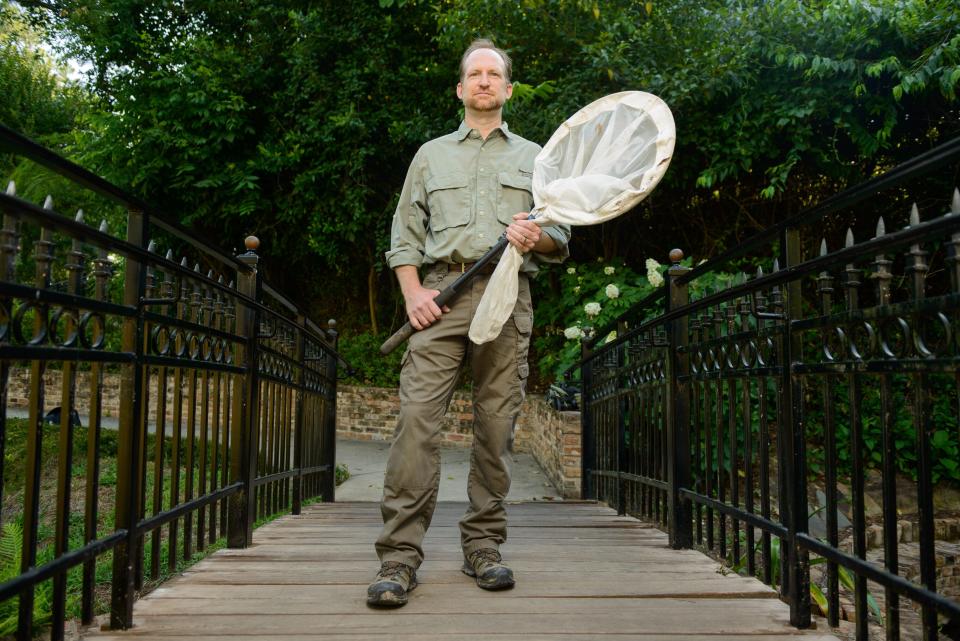University of Alabama entomologist busts six myths about cicadas
For a small insect, cicadas have generated a big buzz this year.
A rare dual brood emergence of cicadas is happening this spring and summer, meaning that trillions of male cicadas the insects will be singing their mating song — a distinctive hum that can reach up to 100 decibels, which is comparable to the noise made by a blender.
More: Alabama Cicada-geddon: Trillions of insects to emerge during rare dual-brood event
The two cicada broods will cover a lot of territory, including Alabama and 16 other states across the Midwest and South. This is the first time since 1803 that two broods have emerged at the same time and so plenty of misconceptions have surfaced about cicadas.
John Abbott, an entomologist and chief curator and director of the University of Alabama department of museum research and collections, has dispelled some of those myths.
Here's what Abbott had to say, according to an article on the University of Alabama News Center website.

Can the cicada buzzing damage your hearing?
"I doubt they could damage your hearing, but they can be loud when you are in the middle of a big emergence. I have read around 100 decibels, similar to standing next to a lawn mower engine," Abbott said.
Can cicadas bite people?
"They are harmless. They cannot bite," Abbott said. "They can grab ahold of you if you pick them up, but not in any painful or harmful way."
Are cicadas harmful to pets if eaten?
"No, rather they are a tasty treat for many," Abbott said.
Can cicadas hurt plants or damage crops?
"Generally not," Abbott said. "Despite the large numbers, they have been feeding on the roots of trees underground for the last 13 years. The adults do feed on the sap of trees, but only in rare situations would they actually do harm to them."
Will the cicada buzzing attract copperhead snakes?
"No, the sound does not, but their presence might. Periodical cicadas emerge en masse to accomplish predator satiation," Abbott said. "There are so many that predators can get their fill, but most cicadas survive to go on and reproduce. Because of the large numbers (think all-you-can-eat buffet), they can attract predators including raccoons, coyotes, birds, snakes and more. Copperheads will eat cicadas, so the sheer number of them can be attractive to snakes."

Can people with shellfish allergies eat cicadas?
A person with a shellfish allergy can eat cicadas, but they should be cautious, Abbott said.
"They are related (both cicadas and shellfish are arthropods), so depending on your allergy, you could have an allergic reaction to them, but you may not," he said.
According to other experts, cicadas are safe for most people to eat. Cicadas provide a good source of protein, fiber and minerals. People from Thailand to Mexico to the northern African regions eat cicadas for their taste and nutritional qualities, the experts say.
Reach Jasmine Hollie at JHollie@gannett.com.
This article originally appeared on The Tuscaloosa News: Six cicada myths: University of Alabama bug expert weighs in

